Please note: This is a companion version & not the original book. Sample Book Insights: #1 The United States, a Western European settler colony in North America, emerged from World War II as the most powerful state on Earth. The country came to represent and champion revolutionary, democratic ideals, but internally, things were much more complicated. #2 The American people were proud of their country after World War II, as they had stood up to an entirely evil system and had won. #3 The Soviet Union was the second most-powerful country in 1945, after the United States. However, the Soviets had suffered massive losses during the war, and their population was decimated. They were also far weaker than the United States in every way that counts. #4 The Third World was the term used to describe the majority of the world’s population, who lived under the control of European colonialism in the 1950s.
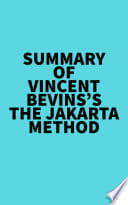
Average Rating
Informations
About the author
Everest Media,
Author
Summary of Vincent Bevins's The Jakarta Method
by Everest Media,
Books Like Summary of Vincent Bevins's The Jakarta Method
If you're looking for books similar to Summary of Vincent Bevins's The Jakarta Method, here are some recommendations based on themes, tone, and narrative style.
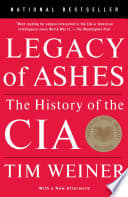
Legacy of Ashes: The History of the CIA
Tim Weiner
A comprehensive investigation of the CIA's covert operations during the Cold War. Explores the agency's global interventions and controversial tactics in shaping international politics. Reveals the complex and often destructive nature of American foreign policy during the mid-20th century. Provides deep insights into the geopolitical strategies used by the United States to combat communist influence.
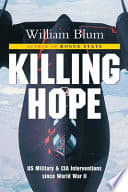
Killing Hope: U.S. Military and CIA Interventions Since World War II
William Blum
A detailed account of U.S. military and intelligence interventions around the world. Examines the systematic approach of American foreign policy in undermining left-leaning governments during the Cold War. Chronicles specific operations and their long-term geopolitical consequences. Offers a critical perspective on American global strategies and their impact on developing nations.
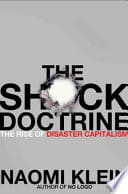
The Shock Doctrine
Naomi Klein
An investigation of how economic and political crises are used to implement radical free-market policies. Explores the connections between economic shock therapy and political transformation. Reveals the strategies used by powerful economic interests to reshape societies during moments of vulnerability. Provides a critical perspective on global capitalist interventions.
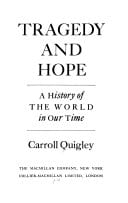
Tragedy and Hope
Carroll Quigley
A comprehensive historical analysis of global power structures and political systems. Explores the complex networks of economic and political influence. Reveals the hidden mechanisms of global control and transformation. Provides a deep historical perspective on international relations.
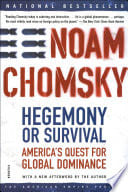
Hegemony or Survival
Noam Chomsky
A critical analysis of American global power and its implications. Explores the strategies of political and economic domination. Reveals the complex mechanisms of global control and intervention. Provides a comprehensive critique of contemporary geopolitical systems.
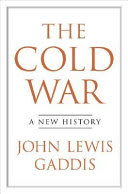
The Cold War: A New History
John Lewis Gaddis
A comprehensive overview of the Cold War's global dynamics and ideological conflicts. Analyzes the strategic maneuvers of the United States and Soviet Union across multiple continents. Provides nuanced insights into the political, economic, and social tensions of the era. Explores how superpowers competed for global influence through proxy wars and diplomatic strategies.
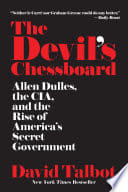
The Devil's Chessboard
David Talbot
A comprehensive investigation of Allen Dulles and the CIA's covert operations. Explores the deep state's influence on American foreign policy during the Cold War. Reveals the complex network of power and manipulation behind global political strategies. Provides a critical examination of intelligence agency operations.
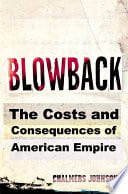
Blowback
Chalmers Johnson
An analysis of the unintended consequences of American foreign policy. Explores how covert operations create long-term global tensions. Reveals the complex relationships between military interventions and international relations. Provides a critical perspective on the global impact of American strategic decisions.
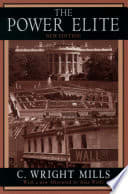
The Power Elite
C. Wright Mills
A groundbreaking examination of power structures in modern society. Explores the interconnections between political, economic, and military elites. Reveals the mechanisms of social and political control. Provides a critical analysis of power dynamics in contemporary societies.

Overthrow: America's Century of Regime Change from Hawaii to Iraq
Stephen Kinzer
An in-depth exploration of American interventions and regime change operations throughout the 20th century. Reveals the systematic approach to destabilizing governments perceived as threats to U.S. interests. Examines the long-term consequences of these interventions on global politics and local populations. Provides a critical analysis of American foreign policy motivations.
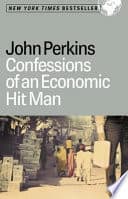
Confessions of an Economic Hitman
John Perkins
A firsthand account of economic manipulation in developing countries. Reveals the strategies used to control global economic systems through debt and political influence. Explores the hidden mechanisms of economic colonialism. Provides insights into how economic policies are used as tools of global control.
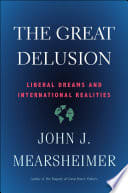
The Great Delusion
John Mearsheimer
A critical examination of liberal hegemony and its global consequences. Explores the limitations of ideological foreign policy interventions. Reveals the complexities of international relations and political strategy. Provides insights into the challenges of global political engagement.

Dark Invasion
Howard Blum
A detailed account of German espionage efforts in the United States during World War I. Explores covert operations and their impact on international relations. Reveals the complex world of early 20th-century intelligence operations. Provides insights into the strategies of global political manipulation.
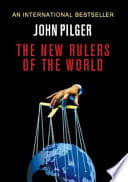
The New Rulers of the World
John Pilger
A critical examination of global power structures and economic imperialism. Explores how multinational corporations and powerful nations manipulate international systems. Reveals the hidden mechanisms of modern global control. Provides a comprehensive critique of contemporary geopolitical strategies.
No account connected — sign in to comment.
